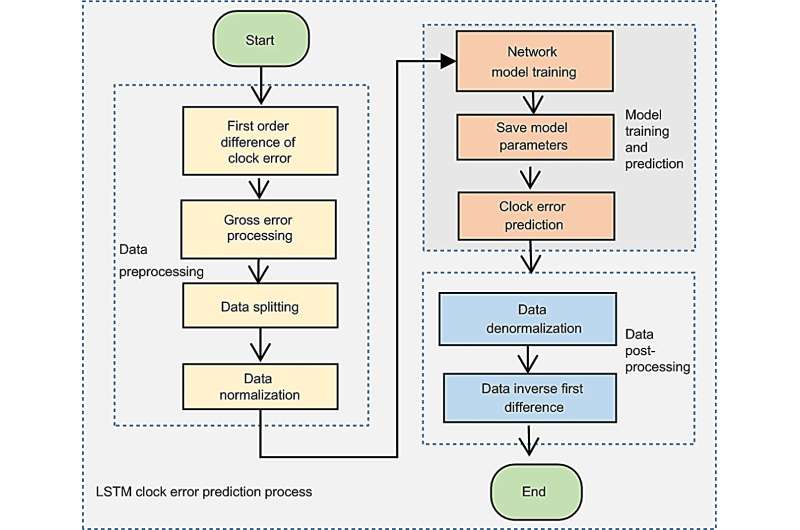
Accurate time-keeping is essential for satellite navigation, as even minor time deviations can result in significant positioning errors. Traditional systems rely heavily on ground-based atomic clocks, which pose risks of service interruptions. Due to these challenges, advanced research is necessary to develop more reliable and autonomous satellite time-keeping systems.
Researchers from the University of Chinese Academy of Sciences and the Innovation Academy for Microsatellites have published a study in Satellite Navigation presenting a novel, two-level timing system using a sparse sampling Long Short-Term Memory (LSTM) algorithm to enhance the precision and stability of satellite navigation time-keeping.
The study proposes a two-level satellite timing system to improve the high-precision autonomous timing capability of navigation satellites. The first level uses multiple atomic clocks on each satellite to form a stable time scale, while the second level integrates these individual time scales into a constellation-level time scale using inter-satellite links (ISLs).
A key innovation is the use of a sparse sampling LSTM algorithm, which significantly enhances the accuracy of long-term clock error predictions. Simulation results show that the frequency stability of the spaceborne time scale improves markedly with this approach.
For instance, at a sampling time of 300 seconds, the frequency stability reaches 1.35 × 10-15, and the 10-day prediction error is reduced to 3.16 × 10-10 seconds. This represents a substantial improvement over existing prediction models.
Dr. Wenbin Gong, the lead researcher, stated, "Our two-level timing system and the application of the sparse sampling LSTM algorithm represent significant advancements in satellite time-keeping. These innovations not only enhance the precision of satellite navigation but also improve the robustness and reliability of space-based time scales."
The advancements presented in this study have far-reaching implications for the future of satellite navigation and related technologies. Enhanced time-keeping accuracy will lead to improved positioning services, benefiting various applications such as autonomous vehicles, global communication systems, and scientific research.
Moreover, the methodology and findings of this research can be applied to other areas requiring precise time synchronization and prediction, further broadening its impact.
More information: Shitao Yang et al, Long-term autonomous time-keeping of navigation constellations based on sparse sampling LSTM algorithm, Satellite Navigation (2024). DOI: 10.1186/s43020-024-00137-6
Provided by TranSpread
Citation: Next-gen satellites: A leap in autonomous timekeeping with LSTM algorithm (2024, June 4) retrieved 4 June 2024 from https://techxplore.com/news/2024-06-gen-satellites-autonomous-timekeeping-lstm.html
This document is subject to copyright. Apart from any fair dealing for the purpose of private study or research, no part may be reproduced without the written permission. The content is provided for information purposes only.
